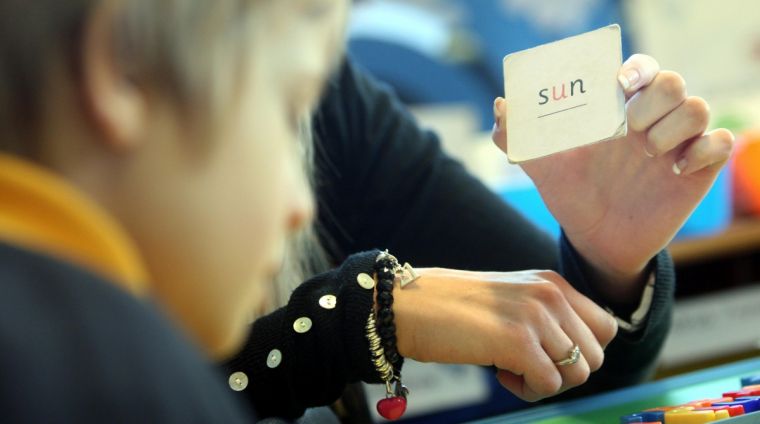Schools should teach religion, not just morality, says bishop

The Bishop of Salisbury has called for the continued inclusion of worship and prayer in school environments.
In a speech delivered to the Conference of the Association of Governing Bodies of Independent Schools on Tuesday, Bishop Nick Holtam criticised the current trend in schools towards limiting religious instruction to lessons on morality and spirituality.
"Every school says it is committed to education of body, mind and spirit but the leadership of most schools puts all the weight of thought, time and money on mind and body," he said.
"Religion and morality are not the same. The religious story is richer, deeper, divine."
Bishop Holtam pointed out that a majority of people in the UK still believe in God, despite the popularity of new atheism, and that around the world eight in 10 people identify with a religion.
"It is clear that in the UK and globally, religious faith remains a part of life," he said.
Religious education in UK schools has been under increasing pressure. In February, the Government announced that it would not be offering bursaries to cover the costs of teacher training for those wishing to become RE teachers, despite continuing to offer such provisions for almost every other subject.
This was described as "pure discrimination" by the Religious Education Council of England and Wales, and comes at a time when only 46.3 per cent of RE teachers have an A-level qualification relevant to the field they are teaching, the lowest percentage of all subjects, despite RE remaining a compulsory GCSE subject.
Bishop Holtam expressed a concern that religious experience within the school environment is also being side-lined.
"It matters that we teach Christianity not just as history, philosophy and ethics, but as the lively faith of a religious community including experiences of worship and prayer," he said.
In November 2012, the Government announced that schools were essentially free to ignore the mandatory guidelines that stated pupils "shall on each school day take part in an act of collective worship".
The guidelines, which were originally drafted in 1994 said: "Collective worship in county schools and equivalent grant-maintained schools must be wholly or mainly of a broadly Christian character, though not distinctive of any particular Christian denomination."
A spokesperson from the Department for Education told the National Secular Society that: "The guidance has not been withdrawn, but we are now leaving it up to schools to interpret the law how they see fit."
The Government has also made it harder for religious communities to operate schools specifically geared towards teaching their faith to their children.
Secretary of State for Education Michael Gove insisted last November that all state funded faith schools that are oversubscribed must take on 50 per cent of admissions from outside their faith community. Mark Hoban MP suggested last month that the cap was a disincentive to the Catholic Church setting up schools because it "dilutes their ethos".
"It is hard to see how those shared values and ethos can be maintained if half the pupils cannot relate to the practice of the Catholic faith," he told Parliament.
The Catholic Bishops' Conference of England and Wales made similar comments: "The conference takes the view that the imposition of a 50 per cent cap on the control of admissions is not a secure basis for the provision of a Catholic school."
While Bishop Holtam acknowledged the intention of the new focus on morality and spirituality as an attempt to be "inclusive", he suggested the approach was flawed.
"Universal values do not exist in a vacuum," he argued. "To belong everywhere you have to belong somewhere. We want depth and not just superficial acquaintance."
He also expressed a concern that without proper cultural and religious anchoring, belief systems can be created to justify practically anything. Quoting Christian writer G K Chesterton, Bishop Holtam said: "When people stop believing in God they don't believe in nothing, they believe in anything."
Bishop Holtam denied that this was an attempt to force Christianity to be preached in schools, but rather claimed that it was an attempt to give children a genuine experience of Christianity so that they might understand it better.
"This is about giving young people a good education and the opportunity to explore faith so as to be better able to negotiate the world in which they live," he said.











